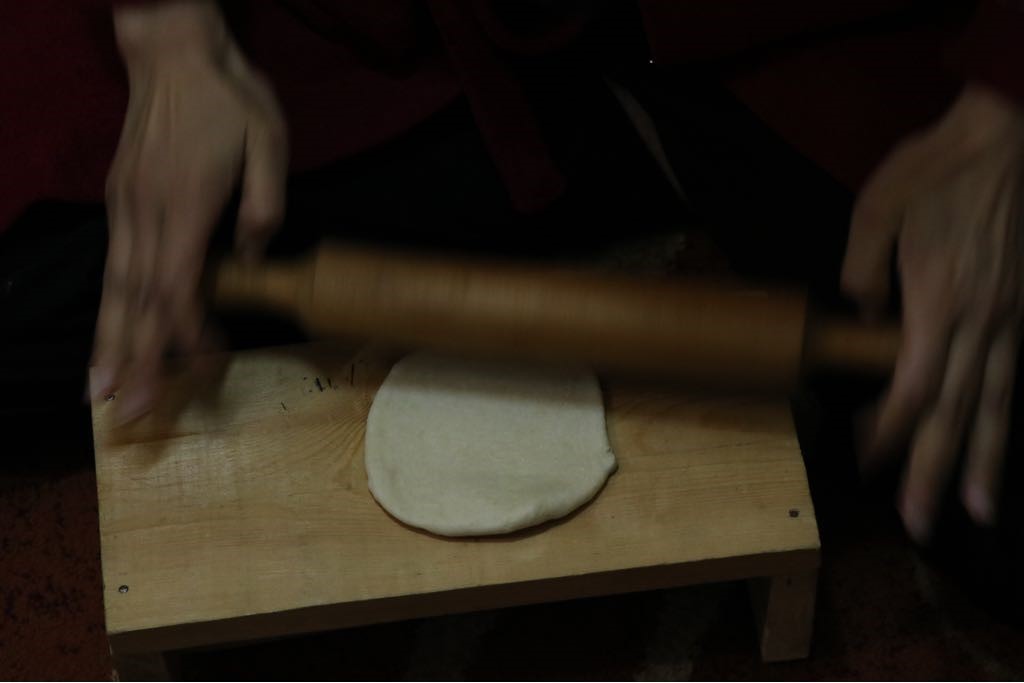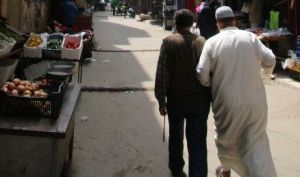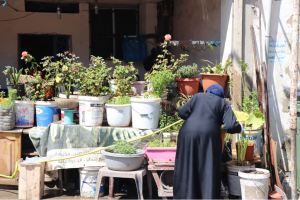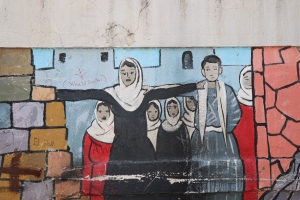The Al Shami Kitchen Project is a refugee-led initiative that directly challenges assumptions that refugees are passive victims in need of care from outsiders. In this piece, Fatmanur Delioglu’s research, based in Izmit, Turkey, focuses on the solidarity networks developed amongst Syrian refugee women, and between them and members of the local Turkish community. In line with the aims of the Southern Responses to Displacement project, Fatmanur’s research centralizes the voices of refugees and provides insights into how these networks impact on the economic and psycho-social lives of refugee women, the lives of their families, and the wider community. It also examines the structural power imbalances between refugee women and Turkish municipalities, within which these networks operate, and how they resist patriarchal and social norms that can create and maintain multiple disadvantages experienced by refugee women.
If you find this piece of interest, please also see the suggested readings at the end of this article.
The ‘Al Shami Kitchen Project’ – Solidarity amongst Syrian Refugee Women in Izmit, Turkey
By Fatmanur Delioglu, MSc student in political science and international relations at Istanbul Sehir University.
Since 2011, Turkey has hosted over three million Syrians through the application of an open-door policy. However, many have been exposed to discrimination and hate speech throughout the country. In such a context, it is particularly important to recognize the existence and nature of solidarity networks for both Turks and refugees from Syria. By solidarity networks, I refer to the processes through which Syrians and Turks come together, share with each other, analyze their own lives and increase awareness of the situation of members of the local community and of Syrians in Turkey. As refugees take part in these solidarity networks, they can become more aware of their existing rights and feel stronger psychologically because they are better able to fight against right violations when they are together. In turn, mutual prejudices can be broken down by the involvement of local people in solidarity networks.
This piece is based on my thesis: ‘Syrian refugee women solidarity network: The case of Al Shami Kitchen Project’ which drew upon research conducted in Izmit, Turkey. It was important for me to focus my research in Izmit because the number of studies regarding refugees from Syria in Izmit is low. I became aware of the work of Al Shami Kitchen Project while I was researching solidarity projects related to Syrian refugee women, and I first met with women from Syria who were accessing the Al Shami Kitchen Project in 2017. To date I have conducted semi-structured interviews with 8 Syrian women, and the research is ongoing. My aim in this research is to identify and analyze some of the effects of participation in solidarity networks on the lives of refugee women.
Al Shami Kitchen Project is run by and for Syrian and Turkish women in Izmit. The project was launched in 2015 with 15 Syrian women. However, some of these ‘original’ members travelled abroad or sought asylum outside of Turkey. The project currently continues with 12 women.
One year after its establishment, the municipality expressed a desire to sponsor the project – viewing this as an opportunity to start working with a group that had already established solidarity networks. This request was accepted, considering the promises offered by the municipality, which offered a kitchen for Syrian women to use, and a playground for their children.
Women are not able to earn a regular and reliable income from working in the project, solely taking money for any meal(s) they make on the basis of a meal request. Nonetheless, in spite of leading to only a limited, and unstable, income, the project has been perceived as offering its members diverse advantages.
The project has been designed primarily for the benefit of Syrian women and aims to strengthen Syrian refugee women living in Izmit both economically and psycho-socially, and to facilitate ‘integration’ to Turkish society.
Importantly, the activities of the project are based on the wishes and suggestions of participant refugee women from Syria. Women participating in the project have, together, determined the content of this project and the project turned into a kitchen project because it reflects the aspirations and preferences of the women.
The members of Al Shami Kitchen Project do not use the word “solidarity” but I decided to use “solidarity” after interviewing women involved in the project because I recognized that these women do not just come together for an economic benefit. They are sharing feelings, thoughts and different ways of supporting each other. When they face a problem, many women share it with the other project participants because it makes them feel comfortable. They have stated that they miss each other when they do not come together through the project because they feel like a family.
Women were supported and encouraged by their families to participate in the project and women told me that cooking together has had a therapeutic effect on their lives. They also asserted that the project has had positive effects in their participation in the society. During our interviews, they often compared their lives before and after the project. For instance, two of my interviewees explained:
“A lot has changed. I was dependent on the home environment, I did not know anyone. I have both socialized and expanded my friend environment. I feel I am happy, as I have a job. I am part of a project. I feel comfortable myself.” (Interviewee 1)
“Of course the first year was a tough one. I was like a foreigner, but later I met the Syrians; acquaintances also appeared from the same neighbourhood and school. It was comfortable after that. It is so comfortable with the project. When I first arrived I did not know many Syrians. I wanted to go to somebody. Due to this project, the scattered Syrians came together.” (Interviewee 2)
Refugee women from Syria experience multiple disadvantages due to their status as refugees, and as women in a patriarchal society. However, through solidarity networks, women remember that they are agents in their own lives because these networks of solidarity can be transformed into places where women also have the courage to raise their consciousness about their rights in Turkey.
When women join solidarity networks, they often engage in activities that enable them to actively participate in life outside of their home. In host countries, women who have experienced displacement may struggle to be considered as real agents, as women who are capable of having control over their lives; instead they are commonly viewed as war victims and passive subjects. Additionally, refugee women’s relationships with local Turkish women and networks of solidarity also have the potential to change their perspective both on their concept of being a woman and of ‘being a foreigner.’
Many refugee women’s solidarity networks in Turkey provide the foundations for a more livable life by strengthening the link between refugee women and diverse aspects of social life. Through these solidarity networks, both with other Syrian women and with local Turkish women, refugee women have the opportunity to be together with other women, and to use and develop existing skills.
For example, Al Shami Kitchen Project has established a close relationship with the local society and increased cultural interaction within and across different groups of people. Syrian women are organizing an iftar program in the month of Ramadan with the sponsorship of the municipality for three years. The iftar program, which includes both local people and Syrians, allows members of these groups to know each other and to taste Syrian dishes. When they come to know each other and each other’s cultures and recognize similarities between each other, they become closer.
This cultural interaction has also led to changes in the lives of women’s families, including their children. There is a playground for children in the kitchen area provided by the municipality and children can play games in this area while their mothers are cooking. One of the interviewees describes how the project affects her and her family’s life as follows:
“My social life has developed and I have begun to love Turkey. I have friends. I am not alone, I am happy. We started to come to each other; friendship has developed. We started touring. We met at the association, participated in the tree planting project, our children traveled. Before the project, my daughter was an introvert, but we came to this project every day for my cooking course, and even my daughter changed.” (Interviewee 3)
Al Shami Kitchen Project has provided a space for Syrian refugee women to be aware of each other and to stand strong in the face of the diverse problems they have experienced together, such as discrimination. Syrian refugee women are in a network of communication and solidarity not only among themselves but also with other refugee women and with local women in Izmit, with whom they frequently communicate through social media. Through these solidarity networks refugee women raise their consciousness about their rights in Turkey and, they told me, are better able to overcome their problems.
Although solidarity networks are very important for women to establish a more comfortable life, many variables affect this situation positively or negatively. It is also important to acknowledge who has cooperated with these women’s groups and what the power dynamics between them are. For example, cooperation with the municipality has caused both advantages and disadvantages. On the one hand, the support of the municipality has enabled members of the Kitchen initiative to take cookery courses, Turkish language courses, and courses on other topics. However, on the other hand, an obstacle to the autonomous existence of the project is precisely due to the power imbalance and structural hierarchy between the municipality and the project. Although the municipality proposed that the kitchen was to be owned by the women, they have opened a municipality-owned kitchen for their use. Syrian women are only able to access it when they have a specific job to complete.
Additionally, Syrian women in Turkey have no clear and permanent status. Turkey is a signatory to the 1951 Geneva Convention and its 1967 Additional Protocol, however Turkey applies a geographical limitation to the 1951 Geneva Convention. In line with the geographical limitation, asylum rights are limited only to Europeans in the country, while Syrians who have fled to Turkey are not recognized as “refugees”. In this article I have made a decision to call individuals who have been forced to migrate from Syria to Turkey refugees. According to the Refugee Convention, Syrians are refugees and I believe that they should have access to the basic and important rights that should be available to refugees.
The fact that Syrians do not have a clear status increases their future anxiety. Holding refugee status has the potential to reduce these concerns. The fact that the future of women in this project is uncertain and their status is not clear prevents them from being in an equal position against a dominant power like the municipality. This inequality leads to municipality hegemony on the project, as for example, the municipality can close the kitchen, influencing the future of the project and the Syrian women at its core.
About the author:
Fatmanur graduated from Yıldız Technical University, Department of Political Science and International Relations (2016). She completed an Erasmus internship at the Gender and Diversity Institute in Kiel, Germany (2016) and participated in a research project analyzing Turkish media coverage of Syrian refugees at Center for Middle Eastern Studies at Lund University (2018). She currently completing an internship at Istanbul Policy Center. She is interested in integration policies, refugee solidarity networks, gender and role of non-governmental organizations in constructing social peace.
If you found this post of interest you can find further posts that touch on this topic at the Southern Responses to Displacement project blog page, or access the following specific posts:
Carpi, E. (2018) ‘Southern’ and ‘Northern’ assistance provision beyond the grand narratives: Views from Lebanese and Syrian providers in Lebanon
Fiddian-Qasmiyeh, E. (2018) ‘Histories and spaces of Southern-led responses to displacement’
Carpi, E. 2018 In conversation with the Kahkaha project in Lebanon: an effective example of a Southern-led initiative.
Wagner, A. (2018) “There are no missionaries here!” – How a local church took the lead in the refugee response in northern Jordan
Ozturk, M. (2018) Municipal-level responses to Syrian refugees in Turkey: The case of Bursa
**
Featured image: Making bread in Baddawi Refugee Camp, Lebanon. (c) E. Fiddian-Qasmiyeh, 2018.



